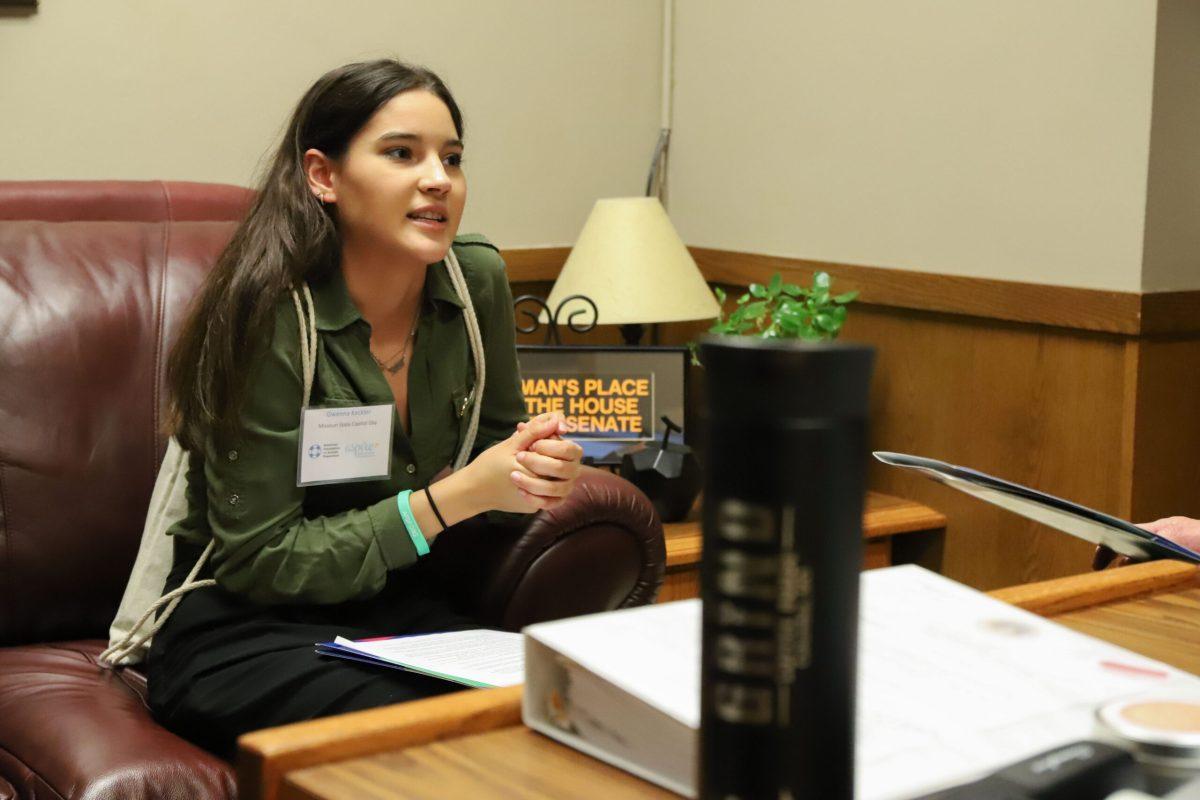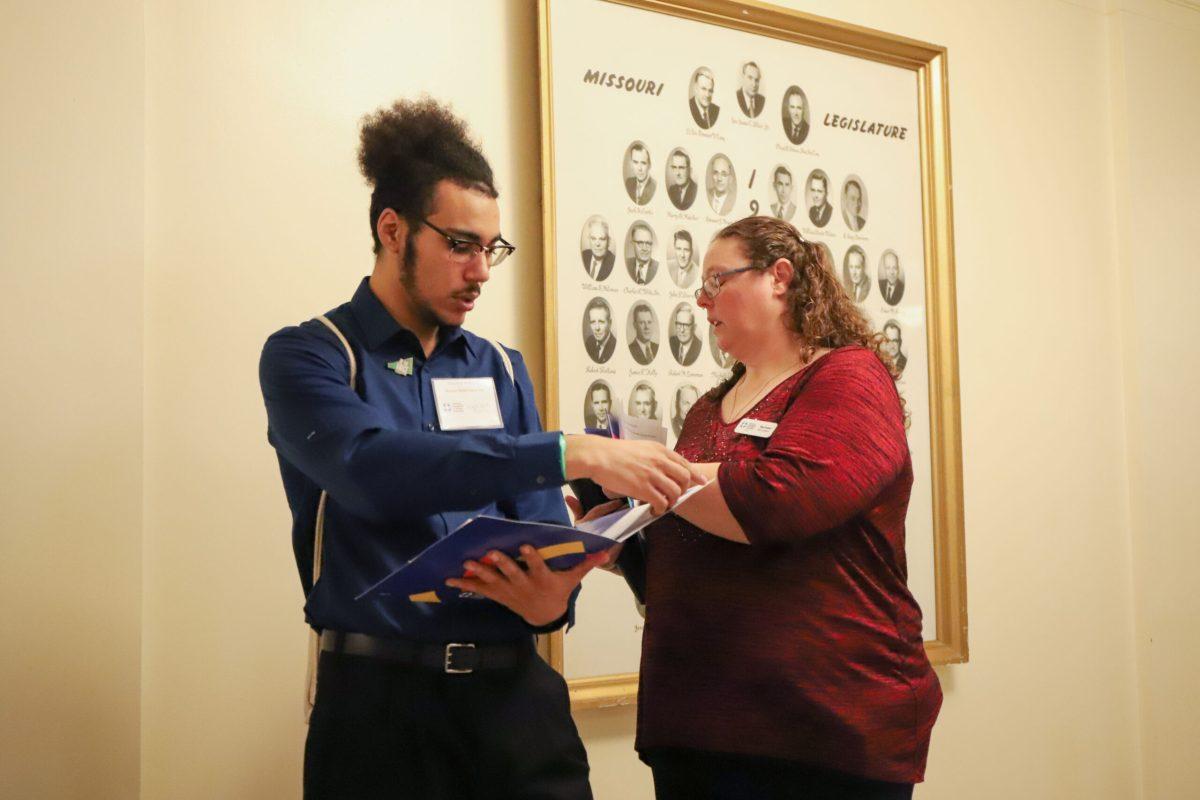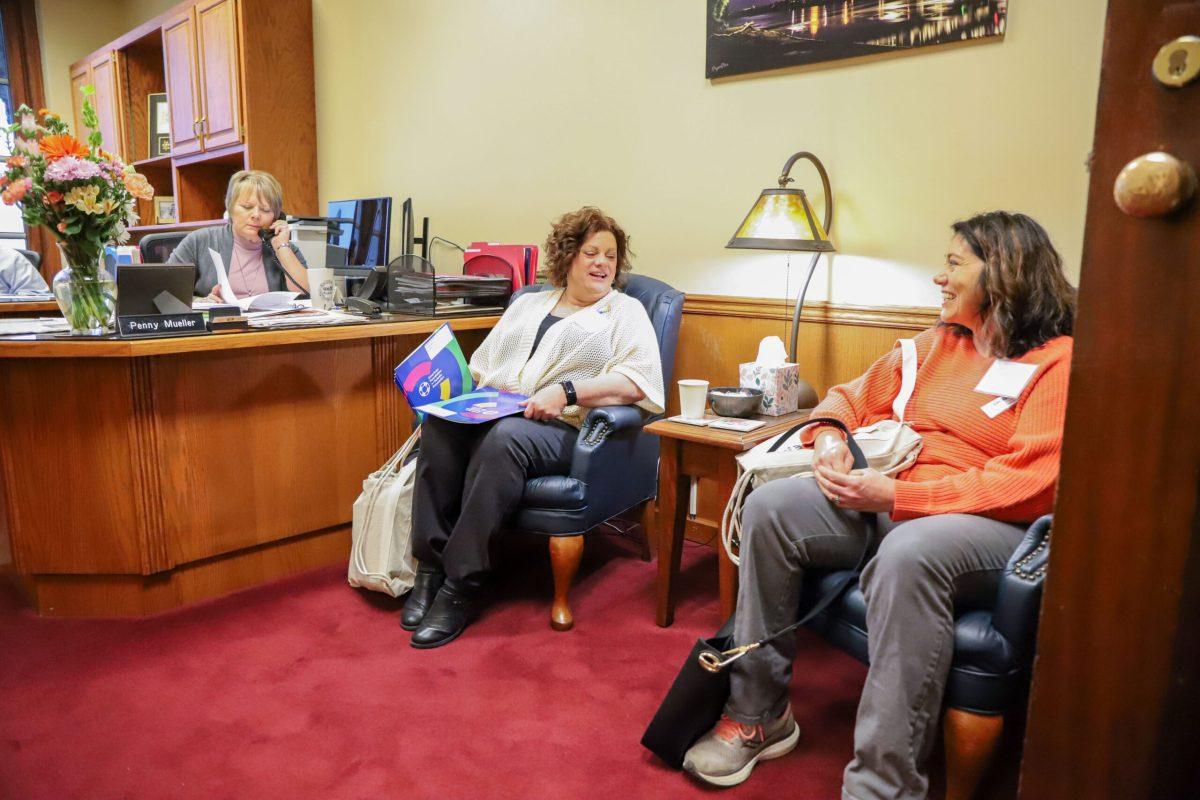At “Advocacy Day,” two organizations coordinated over 100 appointments with legislators to draw attention to seven bills related to mental health policy.
Students and community members met at the state Capitol on Wednesday to advocate for mental health awareness and suicide prevention.
The event, titled “Advocacy Day,” was coordinated in partnership between the American Foundation for Suicide Prevention Missouri chapter and Aspire Advocates for Behavioral Health. Attendees were divided into groups based on which legislators represented them and were then assigned appointments with their representatives to discuss mental health policies.
AFSP offered each representative a list of legislative priorities, including bills related to LGBTQ+ mental health, veteran suicide prevention and the creation of a dialectical behavioral therapy task force.
According to Kelli Unnerstall, the founder of Aspire Advocates, the primary focus of her campaign was passing two bills, HB1123 and SB347, which would establish a dialectical behavior therapy task force. The goal of the task force is to recommend standards and procedures for providers and programs to obtain a certification in dialectical behavior therapy, a type of cognitive behavioral therapy intended to help people cope with and change unhealthy behaviors.
ASFP also urged legislators to support bills that would develop suicide prevention programs for veterans and bans on conversion therapy. Additionally, the organization asked them to oppose bills that would ban gender-affirming care.

“We’re just hoping we can see that what we’re doing is making a difference,” Gwenna Keckler, Aspire Advocates intern and MU senior, said. “And that in the conversations our advocates have with the legislators they’re meeting with, they can hear the words we’re saying and what we’re trying to do.”
Keckler is one of five MU students currently interning with Aspire Advocates. In addition to coordinating events such as Advocacy Day, the student interns are heavily involved in advocacy for mental health on MU’s campus.
One of their goals is to establish a one-credit-hour class for freshmen, which would include Q&As, guest speakers and resources related to mental health at MU and in Columbia. They also want to implement the sharing of mental health and substance abuse resources during the Summer Welcome program.
Additionally, the student interns hope to refine MU’s alcohol and substance abuse program — specifically by implementing more activities that would be fun for students and help them learn about resources available to them, according to Keckler.
“We’ve been meeting with the vice provost, we’ve met with Mun Choi,” Keckler said. “We have a lot of sway as college students. We want to make a difference.”

Maurice Auberry, MU junior and Aspire Advocates intern, said he ultimately wants to see increased access to mental health care.
“Through my experiences in Columbia and being in a college town, it’s like — even if kids are ready to talk about it, there’s not enough providers, there’s not enough therapists to help everyone,” Auberry said. “So definitely increasing access to health care, whether that’s grant programs or increasing funding for schools or things like that.”
Rep. Kathy Steinhoff, D-Columbia, said she takes her representation of college-age students very seriously.
“I think the thing about college students, especially the younger college students, is that they’re leaving their support system to come to school. And many of them are just trying to find that support system,” Steinhoff said.
Steinhoff cited a particular concern about the rise in anti-LGBTQ+ bills, which comprised five out of AFSP’s seven legislative priorities given to representatives at the event.
Advocates at the event urged lawmakers to oppose four bills that would ban gender affirming care and to support one that would ban conversion therapy.
This follows the recent passing of SB 134 in the state Senate, a controversial bill nicknamed the “Don’t Say Gay” bill. The legislation would prohibit any school official at a public or charter school from encouraging children under 18 to adopt a gender identity or sexual orientation.
“This is the most personally offensive bill I’ve ever seen in my seven years in this building,” Sen. Greg Razer, D-Kansas City, an MU alum, said. “You are erasing me from history and you are telling teachers in my district that they cannot know, much less be proud of the fact that the state of Missouri has two openly LGBT senators and they both come from my district.”

Following appointments with their representatives in the morning, attendees participated in a rally that featured various speeches related to mental health and substance abuse. They also displayed posters with encouraging messages from attendees and legislators written on green hearts. The color is widely recognized as a symbol of mental health awareness.
The house bill that would establish a DBT task force was referred to the Health and Mental Health Committee by Rep. Mike Stephens, R-Bolivar, by the following day, according to Unnerstall. Auberry was in the room to advocate for the bill.
“Our work as an organization, you know, is being built on the ideas of students at Mizzou, and we have five interns there,” Unnerstall said. “… Mizzou students are shaping this bill, and shaping our work in the legislature and on campus. Really having a big impact. So I’m so proud of that.”
In next steps for the campaign, Unnerstall hopes to see a successful hearing for the bill in the Health and Mental Health Committee. She aims to educate people in the state capitol about the state of the mental health crisis and how DBT can provide a solution.
“I think people don’t realize how much strength and power they have if they step forward and speak up,” Unnerstall said.
Edited by Zoe Homan | [email protected]
Copy Edited by Grace Knight




















